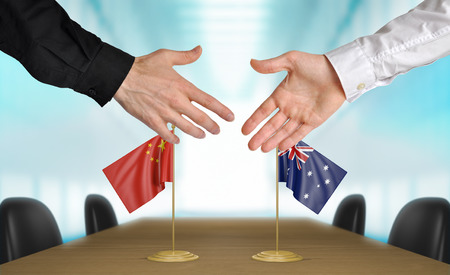Activity 7j: Foreign investment helped to make us rich

- Foreign investment refers to foreign entities either setting up businesses within Australia (i.e. foreign direct investment) or alternatively buying shares in Australian businesses (i.e. portfolio investment).
- According to the Essential poll, 28% of those surveyed felt that foreign investment in mining was bad for the Australian economy. This suggests that Australians, in general, do not support foreign investment.
- Financial capital refers to ‘money’ or ‘funds’, such as debt or equity, whereas physical capital refers to man made items that are used in the production process, such as machinery and equipment.
- Consumption and savings are closely linked given that any given level of income will either be spent on consumption (e.g. spent on goods and services), savings (e.g. put in the bank) or taxes. Assuming income and taxes remain constant, any increase in consumption means that savings must fall and any increase in savings means that consumption must decrease. Accordingly, it is typically an inverse relationship between consumption and savings.
- As savings increase in the economy it will typically mean that the stock of financial capital increases (given that savings are almost invariably ‘invested’ in the financial system). This financial capital within the financial system will then ultimately be lent out to businesses (or governments) who then invest the funds in various projects, much of which ends up being used on physical capital, such as the construction of new buildings, mines, general infrastructure (e.g. rail, roads and bridges), machinery etc.
- This is because we are a relatively young country with insufficient income/savings to support the growth and development of the economy.
- Colloquially speaking ‘selling off the farm’ means that Australia is selling farming assets/entities to foreigners. The expression is typically used by those opposed to foreign investment, particularly foreign investment in crucial assets such as farms, which they consider to be the lifeblood of the economy.
- Given the experience over previous years when first the USA and then Japan began investing heavily in Australian assets (e.g. farms and other business enterprises) to the ultimate advantage of Australia, there is perhaps little to be concerned about with respect to Chinese foreign investment from a purely economic point of view. [However, in global political terms, some question the long term strategy of the Chinese Communist Party, which may involve Australia being a key plank in its global ‘expansion’ plans.]
- Portfolio investment involves money being used to purchase shares in a business (e.g. Chinese entities purchasing shares in Rio Tinto), whereas direct investment involves money being used to establish/set up/buy an entire business (e.g. Chinese entities establishing a steel mill in Australia or Chinese entities purchasing most of the shares in Rio Tinto).
- Equity capital is simply the stock of equity investments held within a country, such as Australian entities purchasing shares in French wineries. Debt capital is simply the stock of debt (investments), such as Australian entities lending money to foreign entities.
- As at March 2016, Australia’s foreign debt totaled $2126 billion. However, given that foreigners owed Australia $1098 billion, Australia’s net foreign debt was $1028 billion. Clearly, net foreign debt will always be lower than foreign debt unless foreigners owed Australia nothing.
- Net foreign equity assets of $323 billion means that Australia has greater equity investments abroad than the total foreign equity investments in Australia. In other words, Australia owns a bigger share of the world compared than the share of Australia owned by the world.
- Prohibiting direct foreign investment in favour of portfolio investment means that Australia will never lose control over any of its key assets (e.g. infrastructure such as ports). However, it will mean that Australia loses the opportunity to take advantage of superior managerial skills and/or technology that may have come with the direct foreign investment.
